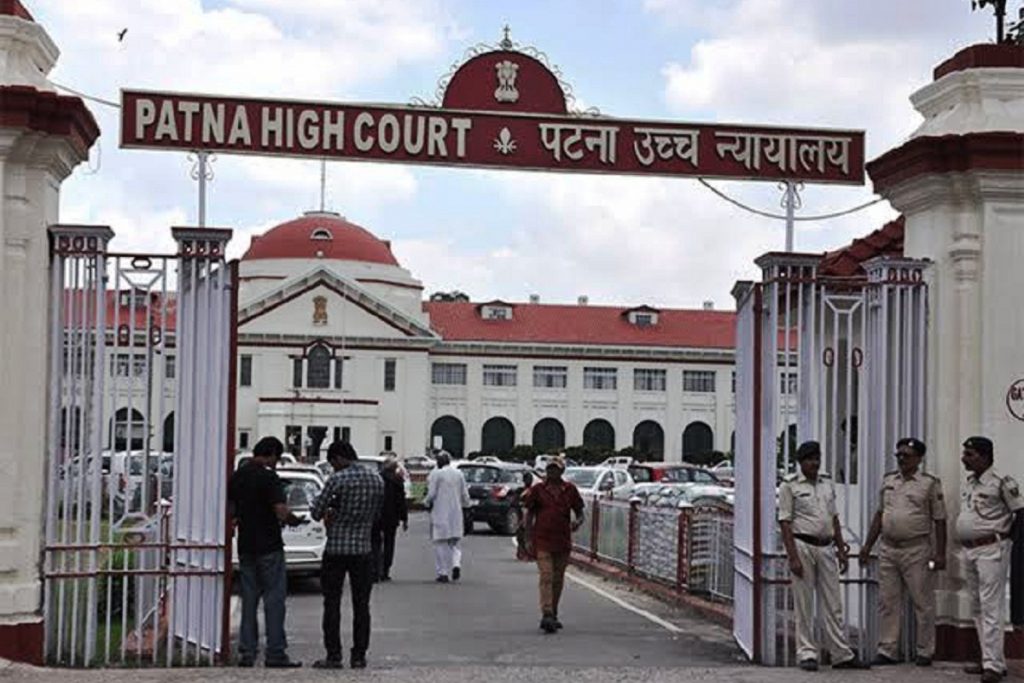


The recent case that unfolded in the hallowed halls of the Patna High Court revolves around a forced marriage known locally as “pakadua vivah”, which took place a decade ago. The court’s decision, grounded in the incomplete Hindu ritual of “Saptapadi” (seven vows around a sacred fire), as mandated by the Hindu Marriage Act of 1955, has far-reaching implications. Notably, the court highlighted the absence of evidence indicating that the woman had cohabited with the petitioner post-marriage, further undermining the marriage’s legitimacy.
This case was brought before the court by Ravi Kant, an Army constable hailing from Ravra village in Nawada. Kant’s petition alleged that he was coerced into marrying a woman from Chauki village in Lakhisarai at gunpoint during a visit to the Ashok Dham temple in 2013. Kant’s legal journey commenced when his plea for annulment was summarily rejected by a family court in January 2020, compelling him to escalate the matter to the High Court.
In a judgment delivered by Justices P. B. Bajanthri and Arun Kumar Jha on November 18, 2023, the High Court clarified a pivotal aspect of Hindu marriages. It underscored that a Hindu marriage attains completeness and legal binding only after the performance of the “Saptapadi” ritual. Given that this ritual remained unfulfilled in Kant’s case, the court deemed the marriage legally non-binding. Notably, the judges found the respondents’ claims, asserting the completion of all rituals, including “Saptapadi”, lacking convincing evidence, especially in light of Kant’s allegations of forced marriage. Jitendra Kumar Verma, Ravi Kant’s lawyer, expressed satisfaction with the High Court’s decision, which overturned the family court’s prior ruling. Additionally, the court observed that a dowry case filed against Kant in 2015 appeared to be an afterthought. On the other hand, the respondent’s lawyer, Shashant Shekhar, indicated that they were scrutinizing the High Court’s verdict to determine if it could be legally challenged, focusing on its finer legal points.
This case’s significance lies in its intersection with Hindu law, which recognizes marriage as both a sacrament and a contract. Under specific conditions outlined in Section 13 and Section 13B of the Hindu Marriage Act, 1955, couples can file divorce petitions after one year of marriage, with exceptions permitting cases within the first year under certain circumstances. Additionally, marriages under the Special Marriage Act of 1954 are regarded as civil contracts, devoid of traditional ceremonies. These unions are formalized in the registrar’s office, requiring a thirty-day notice and three witnesses. Legally, both parties must meet age requirements, with the bride being at least eighteen years old and the groom at least twenty-one. Importantly, marriages can be declared voidable if consent was obtained through force, fraud, or coercion, per the Indian Contract Act of 1872.
The case at hand involved a “Pakadua Vivah”, a form of marriage by abduction, prevalent in Begusarai, Bihar. While such marriages may be valid in terms of ceremonies and rituals, but grooms have the option to make them voidable under Section 12(1)(c) of the Hindu Marriage Act, 1955, if they choose as his consent was forcefully taken by the bride family members in such marriage. Notably, the Hindu Marriage Act does not explicitly define consent but can refer to the Indian Contract Act, 1872, for its definition. Sections 13 and 14 of the Indian Contract Act elaborate on consent and free consent, with Section 15 addressing coercion. When coercion is employed, the affected party can make the contract voidable under Section 19 of the Indian Contract Act, depending on their choice.
This legal principle can also be applied to “Pakadua Vivah” cases. As we have discussed above, marriage under Hindu law is recognized as both a sacrament and a contract. In the context of “Pakadua Vivah” cases, the crucial element of free consent between the parties is often absent. In such instances, grooms have the legal option to declare the marriage voidable. However, it’s worth noting that in some cases, they may eventually choose to accept the bride as their wife and daughter-in-law after initial resistance.
The central issue in these cases lies in the lack of awareness among common individuals about the legal provisions available to them in “Pakadua Vivah” situations. Many individuals are unaware of their legal rights and the recourse they have in the face of such marriages. Once individuals become aware of these legal provisions, they can take proactive steps to fight against the injustices that can stem from such marriages. This awareness empowers them to seek justice within the established legal framework and assert their rights.
In an intriguing connection to this issue, Bollywood also explored the theme of “Pakadua Vivah” in the movie “Atarangi Re.” In this cinematic portrayal, the hero encounters a situation reminiscent of a “Pakadua Vivah” but makes a distinct choice. Instead of opting to make the marriage voidable, he decides to accept the marriage after navigating through the turmoil in his life. This cinematic depiction highlights the complexities and choices that individuals may face in such circumstances.
In conclusion, the “Pakadua Vivah” case adjudicated at the Patna High Court transcends a mere legal dispute; it epitomizes the intricate tapestry of Hindu marriage law, civil contracts, and individual autonomy. It serves as a stark reminder of the critical need for legal awareness and access to justice for individuals entangled in complex marital situations, particularly those arising from forced marriages like “Pakadua Vivah.” Ultimately, it stands as a testament to the enduring quest for justice, equality, and individual agency within the legal framework.
Pyali Chatterjee is HOD, Faculty of Law, ICFAI University, Raipur Chhattisgarh